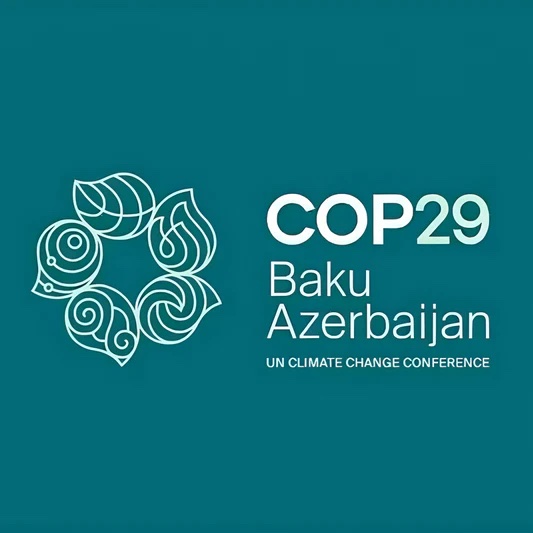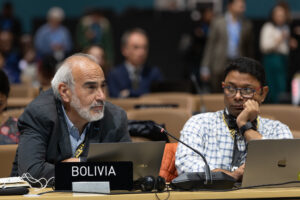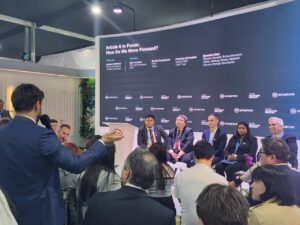COP29 update: Day 9, 20 November

Greetings from Baku!
In the delegation pavilion hall, we felt the first signs that this COP is beginning to wind down. While plenty of pavilions continued to host side events, the volume was a notch lower and the lines at coffee stands were much smaller. Happily, there are still plenty of friends and allies able to join us the IETA Business Hub, to wait for new developments in the negotiations or to meet with colleagues.
At midday the Presidency convened a stocktaking plenary to hear progress reports from the ministerial pairs assigned to consult on outstanding items.
Yasmin Fouad of Egypt reported Parties were particularly emphatic that the New Collective Quantified Goal should not re-open Article 9 of the UN Framework Convention (which deals with financial flows from developed to developing Parties), nor should it re-open the Paris Agreement.
Some Parties also suggested including in the text a clear statement that there is no change to development status or ability to receive finance, Fouad added.
Chris Bowen of Australia reported that Parties were sharply divided over how much of the NCQG should be “provided” and how much should be “mobilised”. Bowen reported various proposals for provided funding $900 billion, $600 billion and $440 billion.
What was clear from the NCQG report-back was that Parties are linking all aspects of the talks: the structure, quantum and contributors, and that we are back to “nothing is agreed until everything is agreed.” Observers agreed, with several saying that the separate pieces on structure, quantum and sources may only fall into place at the last possible moment.
There were also reports on progress in the work streams on adaptation, the mitigation work programme, the just transition work programme and the UAE Dialogue on the Global Stock Take. But for many delegates and organisations all eyes were on the NCQG.
COP President Mukhtar Babayev instructed ministerial pairs to provide updated proposals on key issues by 1700 AZT, and that new draft texts on the headline items would be published by midnight.
Bolivia, for the Like-Minded Developing Countries group, said that there was too much focus on mitigation and NCQG, and that not enough time was being devoted to adaptation or just transition. This was a reference to efforts being made in mitigation talks to encourage major developing countries to move away from coal, and was the trigger for the LMDC group’s attempt on Saturday to push the entire discussion into 2025.
However, observers noted that there appears to be strong determination among Parties to come way with an agreement, though it may take till Saturday to get there.
And speaking to the press afterwards, lead negotiator Yalchin Rafiyev reiterated that the Presidency would not move to develop a cover text, saying they “don’t want to open a new battle front”.
Some good news emerged overnight when Argentinian media reported the country’s foreign minister Gerardo Werthein as saying “we are not leaving” the Paris Agreement. You’ll recall that president Javier Milei instructed his delegation to leave the COP29 talks at the weekend, and there had been some concern that this might be a prelude to a full withdrawal from the UN treaty.

The Like-Minded Developing Countries negotiating group, led by Bolivia, pushed back against developed and other developing country groups on key agenda items including mitigation. (Photo: UNFCCC)
In the negotiations
This morning began with a flurry of text messages alerting to the publication of new draft texts for both Article 6.2 and 6.4.
At the daily BINGO briefing, the host country’s Article 6 negotiator explained that while ministers were carrying out consultations on the issue of registries, the co-facilitators from week 1 had now completed their mandate, and all remaining text had also been sent up to ministers.
The texts published overnight were “clean” – there are no brackets or options – meaning that the ministers will need to make some “executive decisions” and “surgical changes” to the text, rather than wholesale changes.
The host country representative pointed out to BINGO delegates that full operationalisation of Article 6 is long overdue, and with more and more countries starting to develop carbon market structures, it’s critical to get this done.
And at the Presidency stocktaking at midday, we heard from Singapore’s Grace Fu on the ministerial discussions on the Article 6.2 registry issue.
“While the majority wish to do without, or said they could live without, the Article 6.2 registry having an issuance function, Parties were divided on whether it should be able to transfer and hold units,” Fu reported. “There was a divide in the room on whether the Article 6.2 registry was meant to serve as a purely accounting registry or was also meant to serve as transaction registry.”
Fu reported that one solution being considered is to implement a “dual-layer” system, whereby the Article 6.2 international registry would form an accounting layer that tracks and records ITMOs, with pull-and-review functionality, while the UNFCCC secretariat could provide an optional service layer as an extension – outside the scope of the 6.2 international registry – that provides Parties with issuance functionalities.
Simon Watts of New Zealand reported that in other issues related to Article 6, there remain divergent views on upfront information and on addressing inconsistencies.
The ministers resumed their consultations in the afternoon, while the COP president indicated new draft Article 6 texts would be published by 0700 AZT tomorrow.

Article 6 has been a popular topic at numerous pavilions over the last two weeks.
Our COP29 side event programme came to a close with an engrossing discussion of the role and importance of digitisation for carbon markets. Gemma Torras Vives of the World Bank, our own Andrea Bonzanni and Archit Srivastava of Earthood paid out the use-cases for digitisation as a way to navigate and enhance the Paris Agreement world, with our own Climate Action Data Trust held up as an example of how this can help.
We will hold a media briefing on Thursday at 1000 AZT, at which Andrea Bonzanni will provide an update on the progress of the talks and the newest texts.
We’d like to take this opportunity to thank all our sponsors and partners for their invaluable support of the IETA Business Hub this year, and also all the organisations who came to the Hub to host side events; IETA was once again a major forum for exchanging views and experiences.